|
Name of app |
Area of service |
|
AJio |
Online shopping |
|
JioBrowser |
Web-browser |
|
JioCloud |
Cloud storage services |
|
JioCinema |
Video-on-demand |
|
JioChat |
Messaging service |
|
JioGameslite |
Online gaming |
|
JioGate |
Apartment security |
|
JioHome |
Mobile remote control for Jio Set-top box |
|
JioHealthHub |
Health and fitness |
|
JioMart |
Online grocery delivery |
|
JioMeet |
Video conferencing |
|
JioMoney |
Digital currency and payment services |
|
JioNews |
News and information |
|
JioPOSLite |
Jio recharge commission |
|
JioSaavn |
Music streaming |
|
JioSecurity |
Security |
|
JioSwitch |
File sharing |
|
JioTV |
Live streaming |
With close to 400 million telecom subscribers and several partnerships with multiple global technology giants, Jio Platforms is sitting on a hotbed of opportunities to build a Jio ecosystem. From telecom to e-commerce and future 5G solutions, the company is ticking every box in its bid to become India’s digital behemoth.
Today, Jio Platforms operates more than a dozen mobile apps spanning different e-service categories. Launched barely three months ago, its Jio Mart has already shaken the retail solutions market, becoming the largest e-grocery in the country with close to 400,000 daily orders.
The secret to Jio’s success is undeniably the customer-centric model it has followed, along with the robust financial support from its parent company, Reliance Industries Limited (RIL).
Back to mobile telephony
When Jio launched its 4G telecom services in 2016, many industry observers were doubtful if Jio would be able to create a niche for itself in the hyper-competitive telecom market. For the first few months of the launch, Jio offered voice and mobile data services for free.
In the months leading up to the launch of Jio’s aggressively priced 4G services, Jio faced severe criticism for adversely impacting the rest of the telecom services industry. However, it is equally valid that without Jio’s incredible efforts, the dream of digital India wouldn’t have appeared as possible as it looks now.
Amidst all this hullaballoo, Jio’s deluge of freebies and ultra-affordable data plans enabled it to increase the mobile broadband subscriber base to several million. For the first time, many Indian consumers used the mobile internet and realized its potential benefits at a cost that was unthinkable before. The company’s mobile-first approach helped it gain a substantial footing in the market, and improved data adoption in India enormously.
Back then, no other operator was willing to drive data growth through aggressive price plans. The operators had continued to keep the mobile data prices at a level that was not attractive enough for mass adoption. One needs to remember that before the arrival of Jio, the 1GB data used to cost around Rs 200 for the user, which was way too expensive for the masses. Today, the same data costs an average of Rs 25 per GB, considering various mobile plans.
The price cuts resulted in enormous growth in the average consumption of mobile data, something India had been waiting for so long.
Once Jio built the much-needed user base, it went on to develop several Jio exclusive as well as open-market apps and platforms to drive the digital transformation around a developing Jio ecosystem. (See: Jio driving digital shifts in the economy).
That Jio’s growing dominance made it difficult for its competitors to survive and spurred a wave of consolidation in the telecom sector is another story.
Value of lessons learned
The telecom and allied businesses have always been close to the heart of RIL’s Chairman and MD, Mukesh Ambani. Time and again, he has proved that there is no match to his sharp acumen, ability to envisage, spot the future trends early on, and design an impeccable business strategy that is driven by Indian needs. By focussing on building new partnerships, Ambani is helping Jio take the next significant steps in the digital terrain.
One can’t forget the Monsoon Hungama offer in the year 2003, which created a mass frenzy and drove an unprecedented price war in the Indian telecom market. That, in turn, helped India to expand its local telecom service base.
To run a quick refresh, the Monsoon Hungama offer entitled a customer to get a mobile phone along with a 100-minute call time per month for an upfront payment of Rs 501 and a monthly payment of Rs 200 for three years. The offer lowered the entry bar and encouraged many first-time users to use mobile services. Later, however, due to reasons known to all, Mukesh exited the telecom business in 2005, and his Reliance Infocomm business went to Anil Ambani, his younger brother.
With Jio, he is pursuing his futuristic vision again and swiftly turning Jio into the country’s super telecom and digital service provider, something which he could not do in his previous telecom outing.
By bringing various small and medium-term businesses to a Jio ecosystem, the company is tactically moving up the value chain by demonstrating profits for all those who are getting associated with Jio’s dream plan.
A Jio timeline
| June 2010 | Entered the telecom space by purchasing a 95% stake in Infotel Broadband Services Limited (IBSL), which had a 4G broadband spectrum in all 22 circles in India. |
| January 2013 | Renamed Infotel Broadband Services to Reliance Jio Infocomm Limited (RJIL) |
| May 2016 | Launched several multimedia apps on Google Play to offer along with its 4G services |
| September 2016 | Initiated a price war by launching ultra-affordable 4G services throughout India |
| December 2016 | Acquired 50 million telecom subscribers |
| February 2017 | Crossed 100 million subscribers |
| August 2017 |
Launched a host of feature phones, marketed under the Jio brand |
| September 2019 |
Introduced a fiber to the home service, providing home broadband, television, and telephone services |
| November 2019 | Formed a new digital services company, Jio Platforms. Made RJIL a wholly-owned subsidiary of Jio Platforms |
| March-June 2020 | Raised Rs 1,52,056 crore from top tech investors including Facebook, Google, Intel, Qualcomm, and Silver Lake, among others |
| July 2020 | Jio Platforms’ enterprise value estimated to be around US $70 billion; crossed 400-million subscribers mark |
Jio Platform’s recent partnership with Facebook has been seen as an excellent idea for generating immense opportunities for the company and the Jio ecosystem. (See: Will FB–Jio deal create magic?).
Already, 13 other global technology behemoths and strategic investment firms, including Google, Intel Capital, Qualcomm, Silver Lake, Vista Equity Partners, General Atlantic, KKR, Mubadala, ADIA, TPG, L Catterton, and PIF have participated in the fund-raising exercise for Jio Platforms.
Jio is enabling many small and medium businesses to leverage its technology platforms to create a unique digital ecosystem in India. And its sizeable local footprint and business goodwill are helping it to create a fund-raising frenzy even during a pandemic-driven economic slowdown.



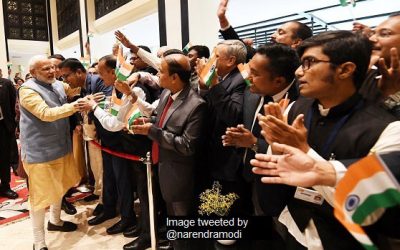
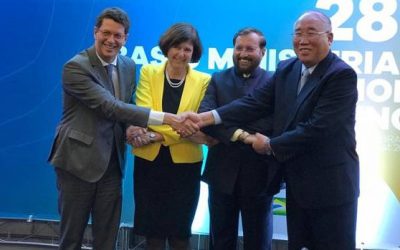
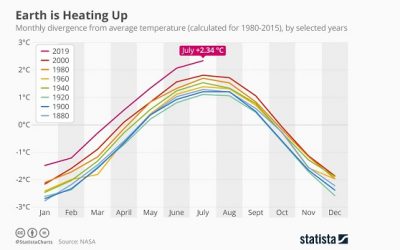


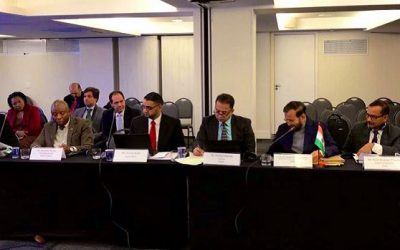

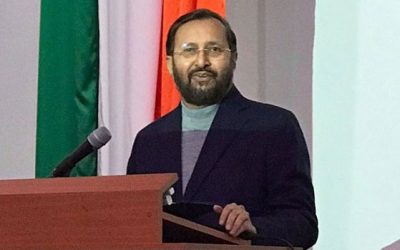
0 Comments